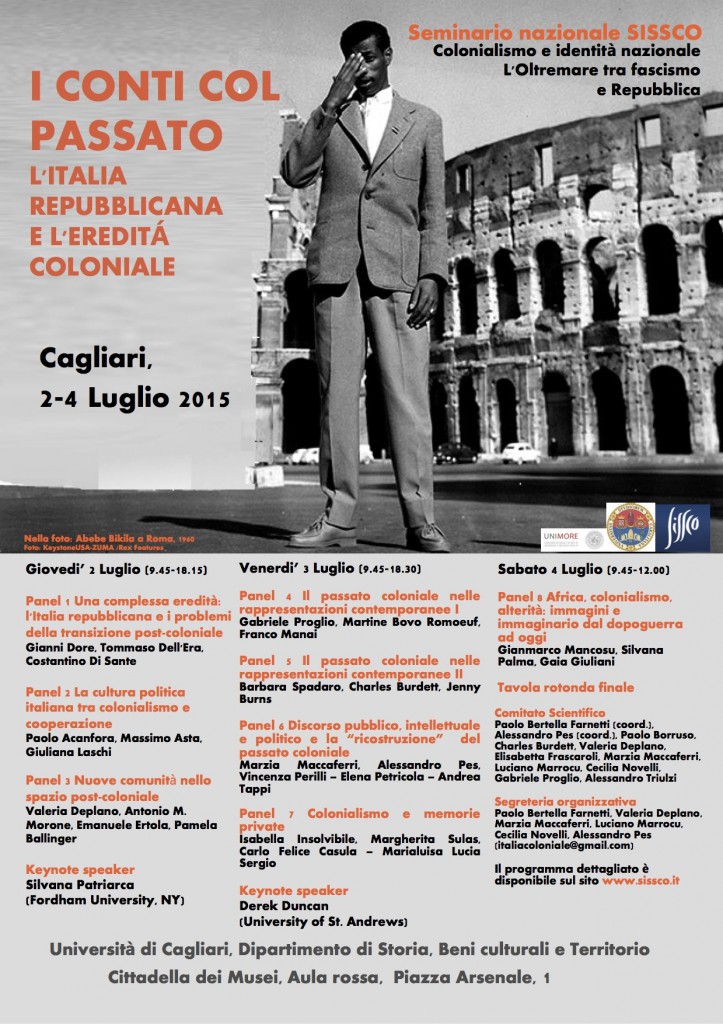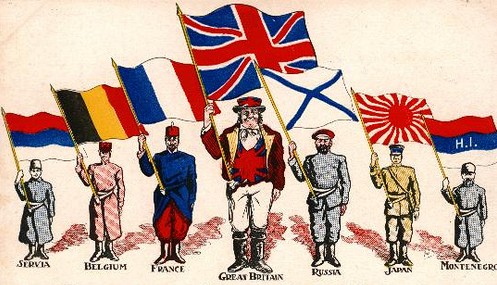On June 20, 2020, former Fordham history Professor Carina Rey, now at Brandeis University, published an op-ed piece in The New York Times called, “”Could the Police Kill Me, Too?’” You can read the piece on this link: https://nyti.ms/2Bma1UL
Tag Archives: Race
Former Fordham History Professor Carina E. Ray published “Could the Police Kill Me, Too?’ My Young Son Asked Me” in The New York Times.
Comments Off on Former Fordham History Professor Carina E. Ray published “Could the Police Kill Me, Too?’ My Young Son Asked Me” in The New York Times.
Filed under Alumni News, Faculty News, Faculty Profiles, Fordham News
Professor Nana Osei-Opare published “Around the world, the U.S. has long been a symbol of anti-black racism” in The Washington Post.
On June 5, 2020, Professor Nana Osei-Opare published, “Around the world, the U.S. has long been a symbol of anti-black racism,” in The Washington Post. You can read it by clicking the link below: https://www.washingtonpost.com/outlook/2020/06/05/around-world-us-has-long-been-symbol-anti-black-racism/
You can follow him on Twitter @NanaOseiOpare.
Comments Off on Professor Nana Osei-Opare published “Around the world, the U.S. has long been a symbol of anti-black racism” in The Washington Post.
Filed under Faculty News, Faculty Profiles, Fordham News, Global History, Public History, Publications
“Unsettled Feeling & Critical Insight”! Graduate Class on Race and Gender
A group of graduate students studying at Fordham University has come together to analyze and provide insight into complex issues of both race and gender. Graduate students, in a course entitled, “Race and Gender” in the fall of 2019, led by Professor Kirsten Swinth, discussed race and gender in modern America.
As a final project, they each wrote several blogs, original pieces, and a comprehensive lesson plan that discusses a specific issue related to race and gender and/or a key historical insight that they obtained after completing the course.
Their publications are available on their student-designed public website (https://ufci2019.ace.fordham.edu ). Each blog post (written by one of the class members) tackles either race or gender through the incorporation of both secondary and primary sources. 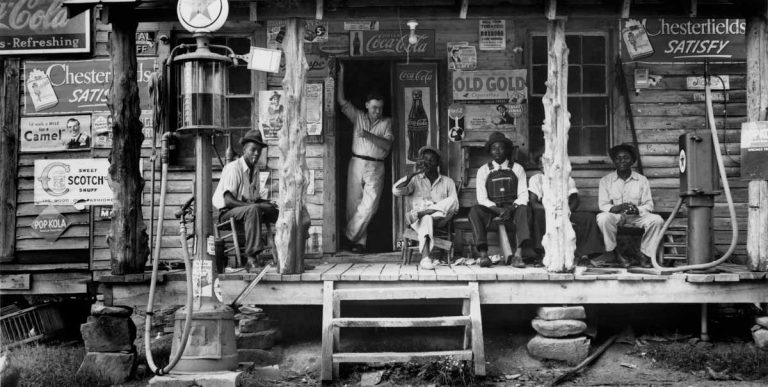
It was their mission to use the knowledge obtained through spending a semester studying these social constructions in great detail to provide valuable insight into each discussion. In each blog post or lesson plan, the students selected a particular topic and offered their research and insights based on the knowledge they had accumulated over the course of the semester.
Students of all levels of higher education, professors, and history enthusiasts are welcome to interact with the information presented within each post. They are invited to consider questions that arise in handling these topics, and consider how their own insights could expand upon these ideas.
List of Contributors:
William Hogue
William Hogue is a PhD student in History at Fordham University interested in the international intellectual and political history of US imperialism and its relationship to American Christianity. His research examines the history of multinational organizations, religious institutions and policy institutes, the politics of international order, and the connections between foreign and domestic policy. In particular, he focuses on the influence of liberation theology in Latin American revolutions and the US domestic human rights reaction to US foreign policy in Central America.
Benjamin Van Dyne
Benjamin Van Dyne is a PhD student in theology at Fordham University, where his work focuses on white and Christian supremacy and social solidarity in the face of violence and suffering. He is a graduate of the University of Virginia and worked as a community organizer in Indiana, Kentucky, Virginia, New York City and Long Island before attending Union Theological Seminary, where he graduated in with his Master of Divinity. He lives in the Bronx with his two children.
Katie Shine
Katie Shine is a first-year doctoral candidate in modern history at Fordham University. Her academic interests include the First and Second World Wars, 20th century Italy, U.S.-Italy foreign relations, memory studies, race and nationalism, and Fascist society in western Europe. Having previously worked in higher education, tutoring, and program management in the career development and financial services spaces, she has had many valuable (and treasured) learning and teaching moments.
Grace Campagna
Grace Campagna is an undergraduate Senior at Fordham University studying History, Anthropology, and Medieval Studies. She will graduate in May 2020 with a Bachelor’s degree in History. Her academic interests include medieval England and women’s history. She has enjoyed tackling new topics and time periods during this course on Race and Gender in Modern America.
David Marchionni
David Marchionni will complete his Masters’ degree in History from Fordham University in August 2020. His MA Thesis will focus on the Stonewall Riots, and its impact upon lesbian and gender non-conforming people of color.
Megan Stevens
Owen Griffis Clow
Owen Griffis Clow is a doctoral student in the Fordham University Department of History. He researches modern American history with a focus on the late twentieth century (1970-2000), violence, and the American South. He is a graduate of Lawrence University (B.A.) and Columbia University (M.A.).
Comments Off on “Unsettled Feeling & Critical Insight”! Graduate Class on Race and Gender
Filed under Courses, Faculty Profiles, Public History, Teaching
Nana Osei-Opare’s new article, “Uneasy Comrades: Postcolonial Statecraft, Race, and Citizenship, Ghana–Soviet Relations, 1957–1966,” is now out.
Osei-Opare’s article tells a new history of the Cold War, of Ghana’s early postcolonial foreign policy, and the formation of Ghana’s national identity through its diplomatic, economic, and migratory relationship with the USSR during Kwame Nkrumah’s government (1957–66). Through examining English and Russian sources from American, British, Ghanaian, and Russian archives, this article offers three arguments. First, by analyzing Soviet anxieties over its role in Ghanaian affairs, the article shows that Ghana significantly controlled the economic and diplomatic contours and pace of its relationship with the USSR. Second, that discourses of race and neocolonialism were more central to defining the terms of Ghana’s geopolitical positioning than the Cold War framework. Third, the virulent racism Ghanaians experienced in the United States and USSR helped forge a global Ghanaian national consciousness. The article illuminates an independent black state’s attempts to procure sovereignty against a white supremacist economic and political international order and calls for Cold War scholars to engage seriously with African archives alongside non-African ones to create more dynamic, representational historical accounts.
You can read the full article here.
You can follow him on Twitter at @NanaOseiOpare

Comments Off on Nana Osei-Opare’s new article, “Uneasy Comrades: Postcolonial Statecraft, Race, and Citizenship, Ghana–Soviet Relations, 1957–1966,” is now out.
Filed under Faculty News, Fordham News, Global History
Exploring race and racism, gender and misogyny: History 5410 Race and Gender in Modern America
Wayward Lives, Beautiful Experiments is an exploratory, experimental history of the lives of young black women in northern cities in the early twentieth century. Its author, Saidiya Hartmann, had just won a MacArthur “genius” grant for her innovative scholarship when we sat down to discuss the book earlier this month. I think that it was at this moment that the seven students in History 5410 Race and Gender in Modern America really gelled. The day’s student seminar-leaders guided us through a provocative, wide-ranging discussion about how Hartmann’s method beautifully evoked the inner worlds of women largely invisible in the historical record where they mostly appear as statistics in sociologies of the ghetto, names on police blotters, or case files of detention centers. We considered what Hartmann taught us about these young women’s lives with her method that we might not have understood otherwise and discussed whether or not this was a method that graduate students in history might want to embrace.
Hartmann’s book is among a set of histories of race and gender in the U.S. since 1877 that the course includes. We have read about miscegenation, farmworkers and migrants, and women’s employment and “economic citizenship” and are moving on to civil rights, conservative politics of the family, and mass incarceration. Katie, a first-year doctoral student in the department, comments that “I have never explored race and gender exclusively in a course and the well-selected readings and discussions have forced me to re-evaluate my preconceived notions of both of these concepts. This class has challenged me to really understand how race and gender construct one another in today’s world.” Grace Campagna, a senior history major, echoes the point, observing that “The biggest takeaway from the class so far has been seeing the range of ways that those in power have used race and gender to construct and uphold social, political, and economic systems.”
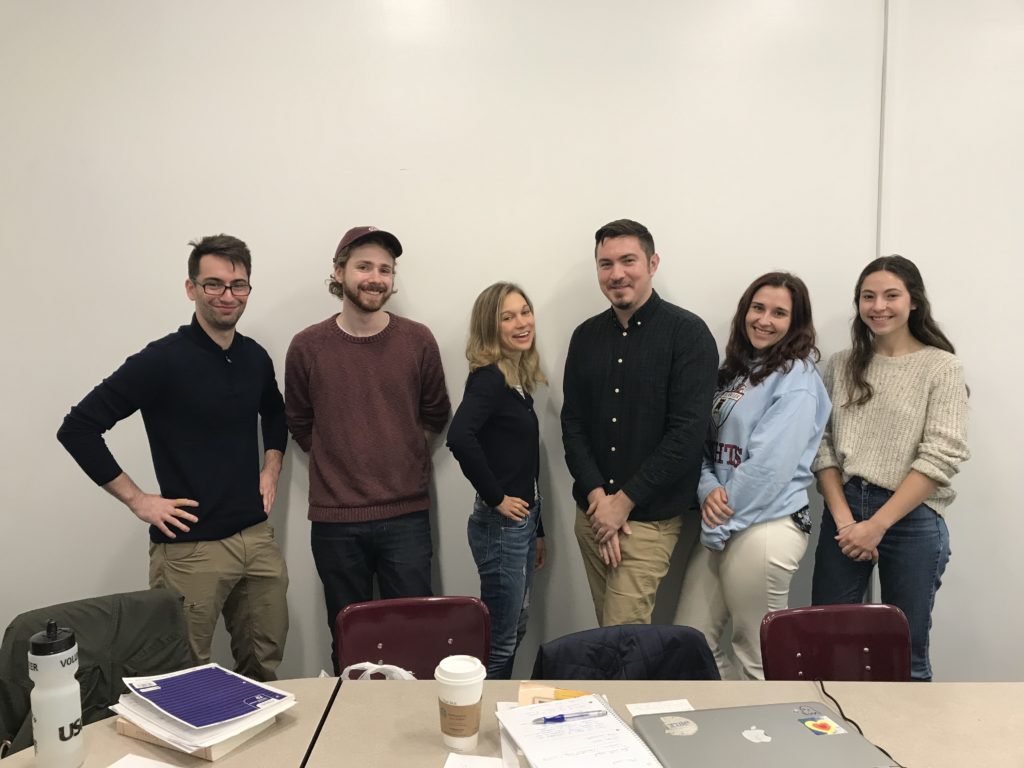
The seminar is based in a student-centered pedagogy. Will Hogue, a second-year doctoral student, says that “Dr. Swinth’s commitment to experimenting with new and more democratic pedagogical methods has been very rewarding.” He adds, “The collaborative syllabus model gives the students not only the chance to tailor the course to their personal needs and goals, but also the chance to practice some lesson planning and course construction. In all, it has been helpful for our development both as scholars and teachers.” In fact, the class just completed a collaborative process to set the topics for the last four weeks of the seminar, all chosen by students to reflect their interests and to pursue questions that have arisen in the first part of the course.
At its most basic, this course investigates the ways that race and gender have shaped what it is like to live in the United States today. It draws upon the field of history and the skills, talents, and creativity of committed graduate students (and an accompanying professor) to explore the key categories and mechanisms that have made race and gender “tick” in American culture and society since Reconstruction. In many it is a traditional graduate readings seminar. Course readings analyze how these key, intersecting categories shaped American politics, economy, culture, state, and criminal justice system. But beyond that, the seminar’s deeper goal is to follow the class’s collective interests. What do class members, as individuals, and the class, as a group, want to understand better and more deeply about the history of race and gender in the U.S.? This course is as an opportunity to figure out why learning about this topic matters to comprehending U.S. history, why it matters to students (personally, professionally, as citizens/contributors), and why it matters to the larger world, future students, and other audiences we have yet to identify.
Comments Off on Exploring race and racism, gender and misogyny: History 5410 Race and Gender in Modern America
Filed under Courses
New Course: HIST 5410 Race and Gender in Modern America
Right now, all over the country, college campuses are the sites of debate and protest over questions of history, identity, privilege, and inclusion. The timing could not be better for a graduate course in the History department which addresses these questions head-on. That is why we are particularly excited to announce that this coming Spring semester Professor Kirsten Swinth will be teaching a new course entitled “Race and Gender in Modern America,” Professor Swinth sat down with us and talked about her ideas for the course, including the book that will be the starting point for the conversation, and her “student-led” approach to the development of the course themes and readings. You can watch her comments below. We found it incredibly inspiring to hear someone speak so passionately and eloquently about the role that history can play in confronting some of the greatest challenges to our society. We bet you will too.
Comments Off on New Course: HIST 5410 Race and Gender in Modern America
Filed under Courses, Faculty News, New Course, Teaching
Patriarca to Deliver Keynote Address at Cagliari Conference
On July 2 Professor Silvana Patriarca will be delivering one of two keynote lectures at a conference in Cagliari, Sardinia. The conference, which is sponsored by SISSCO (the Italian Society for Contemporary History), deals with Italy’s colonial inheritance. The title of Patriarca’s talk will be “Dopoguerra in bianco e nero: ‘razza’ e Chiesa cattolica nell’Italia postfascista” (” Postwar in Black and White: ‘Race’ and the Catholic Church in Postfascist Italy”).
Comments Off on Patriarca to Deliver Keynote Address at Cagliari Conference
Filed under Faculty News
Fall Courses: Nationalisms and Racisms in Modern Europe (Patriarca)
As registration for Fall graduate courses is upon us, we will be profiling the courses offered in the department in Fall 2015. Professor Silvana Patriarca will be offering a new course, HIST 5561 Nationalisms and Racisms in Modern Europe. The course deals with an exciting area of research currently being explored by Professor Patriarca and some of her students. Read on for a description of the course and what can be expected for those who enroll. Continue reading
Comments Off on Fall Courses: Nationalisms and Racisms in Modern Europe (Patriarca)
Filed under New Course
Major New Article Explores Race, Sexual Exploitation, and Anti-Colonial Nationalism in Colonial Ghana
In a new article published this month in the American Historical Review, Carina Ray explores the connections between racialized sexual exploitation and anti-colonial nationalism.
Comments Off on Major New Article Explores Race, Sexual Exploitation, and Anti-Colonial Nationalism in Colonial Ghana
Filed under Faculty News
First Science, Technology, Environment, and Medicine Seminar to Focus on Race and Science in India
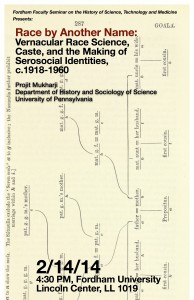 This semester, the History Department at Fordham University will be holding a seminar series on the topic of Science, Technology, Environment, and Medicine. The seminar highlights exciting new areas of research and brings together Fordham faculty with strengths in these fields with outside speakers and commentators. Our first meeting will on at 4:30PM on February 14 in room 1019 of the Lowenstein building on the Lincoln Center Campus. Our discussion will focus on the work of Dr. Projit Mukharji of the University of Pennsylvania, whose paper (abstract and paper below) is entitled “Race by Another Name: Vernacular Race Science, Caste and the Making of Serosocial Identities in India, c. 1918-60”. Continue reading
This semester, the History Department at Fordham University will be holding a seminar series on the topic of Science, Technology, Environment, and Medicine. The seminar highlights exciting new areas of research and brings together Fordham faculty with strengths in these fields with outside speakers and commentators. Our first meeting will on at 4:30PM on February 14 in room 1019 of the Lowenstein building on the Lincoln Center Campus. Our discussion will focus on the work of Dr. Projit Mukharji of the University of Pennsylvania, whose paper (abstract and paper below) is entitled “Race by Another Name: Vernacular Race Science, Caste and the Making of Serosocial Identities in India, c. 1918-60”. Continue reading
Comments Off on First Science, Technology, Environment, and Medicine Seminar to Focus on Race and Science in India
Filed under Department Events

